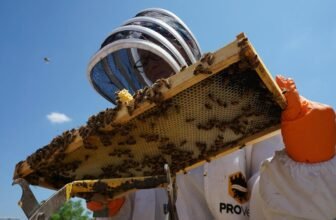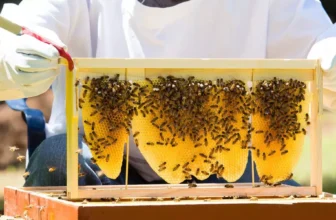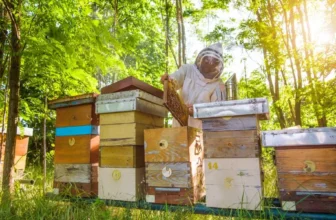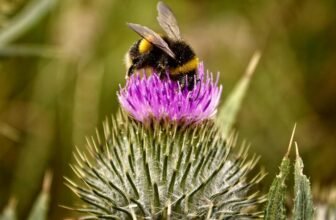
Maintaining beehives in your vicinity can lead to significant advantages that extend beyond mere honey production. Did you know that bees play a crucial role in enhancing the health of your garden and surrounding environment? By fostering a symbiotic relationship with these industrious pollinators, you unlock a world of benefits that contribute to a thriving ecosystem. From increased crop yields to the promotion of biodiversity, the rewards of beekeeping are both practical and profound. But there's more to this story than meets the eye; delve deeper into the hive's secrets to uncover the full scope of advantages waiting to be revealed.
Increased Pollination Rates
By keeping bees, you boost pollination rates in your garden and help plants thrive. Bees are essential pollinators, carrying pollen from one flower to another, facilitating the reproduction of various plants. As they collect nectar to make honey, bees unintentionally transfer pollen grains, leading to increased fertilization and fruit production in your garden.
With higher pollination rates, you can expect a more abundant harvest of fruits, vegetables, and flowers. This means more delicious produce for you to enjoy and share with others. Your garden will bloom with vibrant colors and yield healthier, more robust crops thanks to the diligent work of your buzzing helpers.
Furthermore, by supporting bee populations, you contribute to the overall health of the ecosystem. Bees play a crucial role in maintaining biodiversity and ensuring the survival of numerous plant species. Your efforts in beekeeping have a ripple effect, benefiting not just your garden but the environment as a whole.
Sustainable Honey Production
Boost your garden's sustainability by implementing practices that promote ethical and environmentally friendly honey production. Sustainable honey production focuses on maintaining the health of bee colonies and minimizing negative impacts on the environment. By using organic and natural methods to manage bee hives, you can help support the overall well-being of the bees and the ecosystem.
One key aspect of sustainable honey production is avoiding the use of harmful chemicals in beekeeping practices. Opt for natural hive treatments and organic beekeeping methods to ensure that the honey produced is free from contaminants and safe for consumption. Additionally, providing bees with a diverse range of plants and flowers to forage from can help enhance the flavor and nutritional value of the honey they produce.
Enhanced Biodiversity in Gardens
To promote enhanced biodiversity in your garden, consider incorporating a variety of native plants and flowers. Native plants are well-adapted to your region's climate and soil conditions, making them an excellent choice to attract a diverse range of pollinators, including bees. By planting a mix of flowers that bloom at different times throughout the year, you can provide food sources for bees and other beneficial insects consistently.
Creating a diverse habitat in your garden not only supports bees but also encourages other wildlife to thrive. Bees play a crucial role in pollinating plants, ensuring the reproduction of many species of flowers and fruits. This, in turn, contributes to the overall health and resilience of your garden ecosystem.
Incorporating a variety of plants also adds beauty and interest to your garden, creating a vibrant and dynamic landscape. Observing the interactions between bees and different plant species can be a rewarding and educational experience. By nurturing biodiversity in your garden, you aren't only supporting bees but also fostering a healthy and sustainable environment for all living organisms.
Therapeutic Effects of Beekeeping
Consider the therapeutic benefits that beekeeping can provide, offering a unique way to connect with nature and promote mental well-being. Engaging in beekeeping allows you to immerse yourself in the natural world, fostering a sense of calmness and mindfulness. The rhythmic hum of bees and the gentle buzzing sounds can have a soothing effect on your mind, reducing stress and anxiety levels.
As you observe the intricate workings of a beehive, you're encouraged to focus on the present moment, practicing mindfulness and enhancing your mental clarity. The repetitive yet purposeful tasks involved in beekeeping, such as tending to the hive or harvesting honey, can provide a sense of accomplishment and fulfillment.
Furthermore, the act of caring for bees can instill a sense of responsibility and connection to the environment, promoting a deeper appreciation for the delicate balance of nature. Developing a bond with your bees and witnessing their hard work can evoke feelings of empathy and gratitude, contributing to a positive outlook on life. Overall, beekeeping offers a therapeutic escape from the stresses of daily life, nurturing your mental well-being and fostering a harmonious connection with the natural world.




